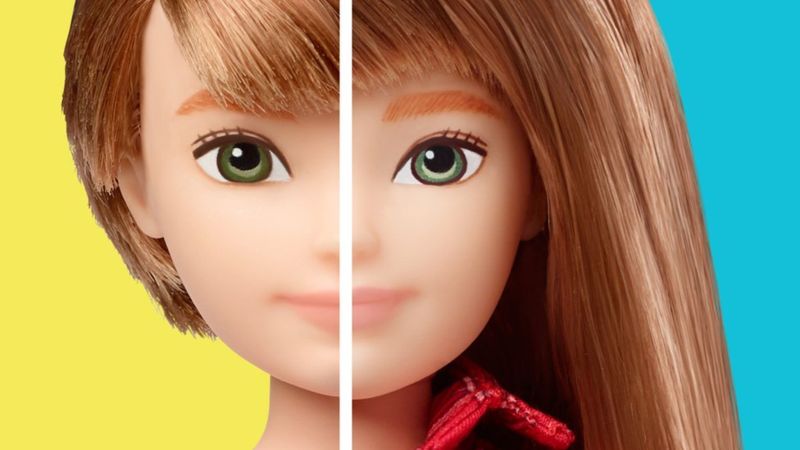The children’s toy industry has recently come into the spotlight in a world that is increasingly celebrating the positive effects of being inclusive.
In a bid to put an end to sexist gender stereotypes, Barbie manufacturer Mattel have launched a collection of gender inclusive dolls named ‘Creatable World.’ The dolls will come with various styling options, allowing children to create custom looks using a combination of trousers, skirts and also interchangeable hairstyles with varying lengths.
The aim is that children will be able to play freely without feeling restricted by gender norms. Kim Culmone, senior vice president of Mattel’s doll design, says the company recognises the importance of children’s toys which are ‘free of labels’ and that the dolls are a ‘reflection of culture’ in the increasingly progressive world we live in.
She explains how the company worked with both parents and, more importantly, children, to create six different doll kits, also in a variety of skin tones. These dolls will allow children who may be questioning their gender identity to play more comfortably and without fear of judgement, whilst also encouraging inclusivity among children who are not.
The launch of this collection comes recently after Dutch Education Minister Ingrid van Engelshoven called on toy manufacturers to examine carefully what they create in order to put a stop to harmful gender stereotypes. Her words came as a reaction to France’s recent vow to get rid of toys which encourage such stereotypes.
French Economy Minister Agnès Pannier-Runacher has stated that the new charter for balanced (gender) representation in toys has the
‘intention of giving both girls and boys access to a world that opens up a range of possibilities.’
She went on to tell French radio:
‘a little girl may want to be a doctor and not dress up in a nurse’s uniform. She might choose to be a knight riding into battle rather than be a princess. Let’s give them a far richer world that doesn’t stigmatise them.’
Although French toymakers have stated it is too early to revise ranges before Christmas, there will be immediate changes to shop displays, as well as how staff treat children.
This conscious effort from France’s toy industry, and Mattel’s ‘Creatable World’ dolls also demonstrate the role that toys play in shaping a child’s future.
It is hoped that such actions will encourage companies in other countries to also incite changes that will put an end to stereotypes in an industry which has traditionally been so black and white with regard to gender, or rather pink and blue.
Image: Mattel

